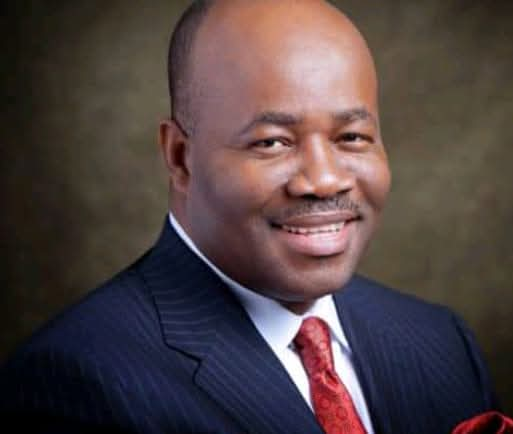By Ernest Udoh-Robert
This July makes it exactly one year since Gov Umo Eno toured Ibom Power Company, assuring his compatriots of improved power generation and distribution from the state-owned power facility located in Ikot Abasi Local Government Area.
He said that he was not among those who merely acted on reports from the field without confirming things by himself, and noted that it was this administrative style that prompted him to embark on the fact-finding mission with the full compliment of state government apparatus to not just the company, but other government departments and agencies as well.
A year after the tour we are yet to see any beautiful bride bringing succour to the epileptic light situation residents in the state have been experiencing. The power plant was initiated by former Governor Victor Attah. The simple idea was to ensure that the state was lighted up and no longer in darkness as it had been the lot of the people.
One of the bottlenecks affecting the electricity sector was the centralization of its generation, transmission, and distribution. But despite the liberalization of the sector, there has not been significant progress in its deliverables. The new actors have complained of one issue or another, even as bail out by the federal government is yet to yield any fruit.
Obviously, corruption is an issue and the manner by which the power holdings were brought was suspicious, hence for pundits the process was shrouded in secrecy devoid of transparency and shaded in corruption. This has affected efficiency in the sector, and unfortunately, the metering system has been a difficult turf to walk on.
The projected gains expected from the over $7.5 billion loans taken by the President Muhammadu Buhari administration to overhaul the transmission segment of the electricity sector and deliver stable supply have remained a mirage.
The World Bank, African Development Bank (AfDB), Japan, France Development Agency and other financiers lent Nigeria over $7.5 billion to improve the weak wheeling capacity of the transmission network and the grid. But alleged widespread corruption, political biases, nonalignment of the infrastructure, and the inability of the distribution companies to increase their offtaking capacity, among other factors, have made the kind-heartedness of the lenders meaningless, and government efforts futile.
The narrative from the power sector in Nigeria has always been bleak. In his efforts to change this narrative the Buhari administration signed the amended constitution giving states power to generate, transmit and distribute power. This means that Nigerian states can now handle generation, transmission, and distribution of electricity. The policy change could improve the availability and reliability of electricity supply, attract more private investors, and provide financial independence to state governments.
Another landmark change by virtue of the new order is that Nigerian States can now generate, transmit and distribute electricity in areas covered by the national grid. It was not allowed pre
amendment. This is genuine, realistic restructuring through the Constitution. But the effectiveness of the policy will depend on how well it is implemented and regulated by both the Federal Government and participating state governments.
While the results for the investment remain a mirage, the economy bleeds in losses as manufacturers alone have spent nothing less than N698.3 billion in the last seven years of Buhari’s administration on alternative energy provision due to the unreliability of the grid. For most manufacturers, the grid remains unpredictable and as such serves as a highly risky energy source for sensitive operational equipment.
Apparently, the policy shift in the power sector should drive states to do more since the usual excuse for inefficiency has been removed. But we are yet to feel or see any difference in Akwa Ibom
State. It has been the usual narrative of, “We are working on it.”
Going by the verve Gov Eno brought into his tour of Ibom Power Plant, one would have expected a-24-supply of electricity in all parts of the state by now. Àpart from the turbines at Ibom Power plant, the decommissioned Aluminum Smelting Company ALSCON also has turbines, not to mention the untapped power capacity wasting at ExxonMobil, or is it Mobil producing now, or whatever? The point is, we have the capacity as a state to have uninterrupted power supply, so why wait for Port Harcourt Power Holding (PHED), which is currently milking their customers without providing the required service.
The governor during the tour had described his experience as revealing, saying that a lot had been unraveled about the operations of the power plant and called for a comprehensive audit report to enable him ascertain his take off point in tackling the challenges. He had appreciated the Ministry of Power, board and management of Ibom Power and Savannah Energy for agreeing to proffer solutions to issues affecting the efficiency of the company, assuring that with a repositioning of the company, it would run optimally and the state would witness uninterrupted electricity supply.
Unfortunately, a year after, we are still in the same quagmire. Nothing has changed, and the heavy tariff introduced by the Tinubu administration has further worsened the peoples’ pains.
Akwa Ibomites have been patient and they are tired of hearing, “we are working on it….” They want to see results and not stories.



We need to build a state that is lighted up as a niche to attract investors
You are spot on. No state has any excuse anymore. ABIA State is doing something great in this direction.